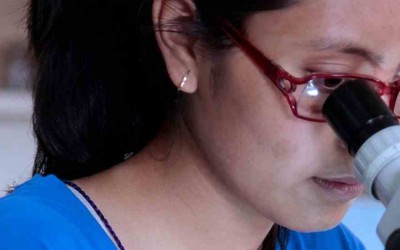Our News

Women who have endured traumatic pregnancies such as severe preeclampsia, eclampsia and HELLP syndrome have a higher incidence of PTSD and PPMD than women without these complications.

The Preeclampsia Foundation is seeking Letters of Intent for the Peter Joseph Pappas Research Grants funding program, designed to accelerate preeclampsia research. The ultimate goal of this grant program is to drive research that will eliminate the d...

A new research study suggests that blood pressure changes during the first 20 weeks of pregnancy—called blood pressure trajectories—may give providers a peek at a woman’s risk of developing high blood pressure years after pregnancy....

Hyperemesis gravidarum (HG), is severe and persistent nausea and vomiting in pregnancy that, unlike morning sickness, can last until delivery. It is not well understood, but does seem to be related somehow to preeclampsia.

Preeclampsia is a major cause of maternal and fetal morbidity and mortality. Prompt and accurate diagnosis is necessary to prevent adverse outcomes. A study was completed to determine the accuracy of triage nurses’ decision-making for pat...

Predicting preeclampsia has proven to be a challenge. Researchers have documented many differences in early pregnancy between those who eventually develop preeclampsia and those who do not. These include body mass index (BMI), blood pressure, and pul...

The U.S. Preventive Services Task Force (USPSTF) and American College of Obstetricians and Gynecologists (ACOG) guidelines changed in 2021 to help prevent preeclampsia. Low-dose aspirin has been shown to reduce the rate of preeclampsia. Modifications...

Hypertensive disorders of pregnancy (HDP), including preeclampsia, affect 1 in 6 pregnancies. HDP is a general term for a range of mild to severe outcomes. Until now there has not been a reliable way to predict whether HDP will develop into sev...
_levels_detect_early_preeclampsia1746032701.png)
Although there is no definitive treatment for preeclampsia, early screening and detection can allow patients to ensure proper management throughout the remainder of the pregnancy. Currently, preeclampsia is diagnosed through clinical assessment, whi...

Peter Joseph Pappas preeclampsia research grant recipients' study titles and reports.

Meghan Markle opens up about her experience with postpartum preeclampsia, a life-threatening disorder of pregnancy, on her new podcast.

April 8, 2025 - San Francisco, Calif. - Mirvie announced today the results from a breakthrough study published today in Nature Communications that reveal new advances in the biological understanding of hypertensive disorders of pregnancy (HDP), inclu...




1742221235.png)
_41721308753.jpg)
